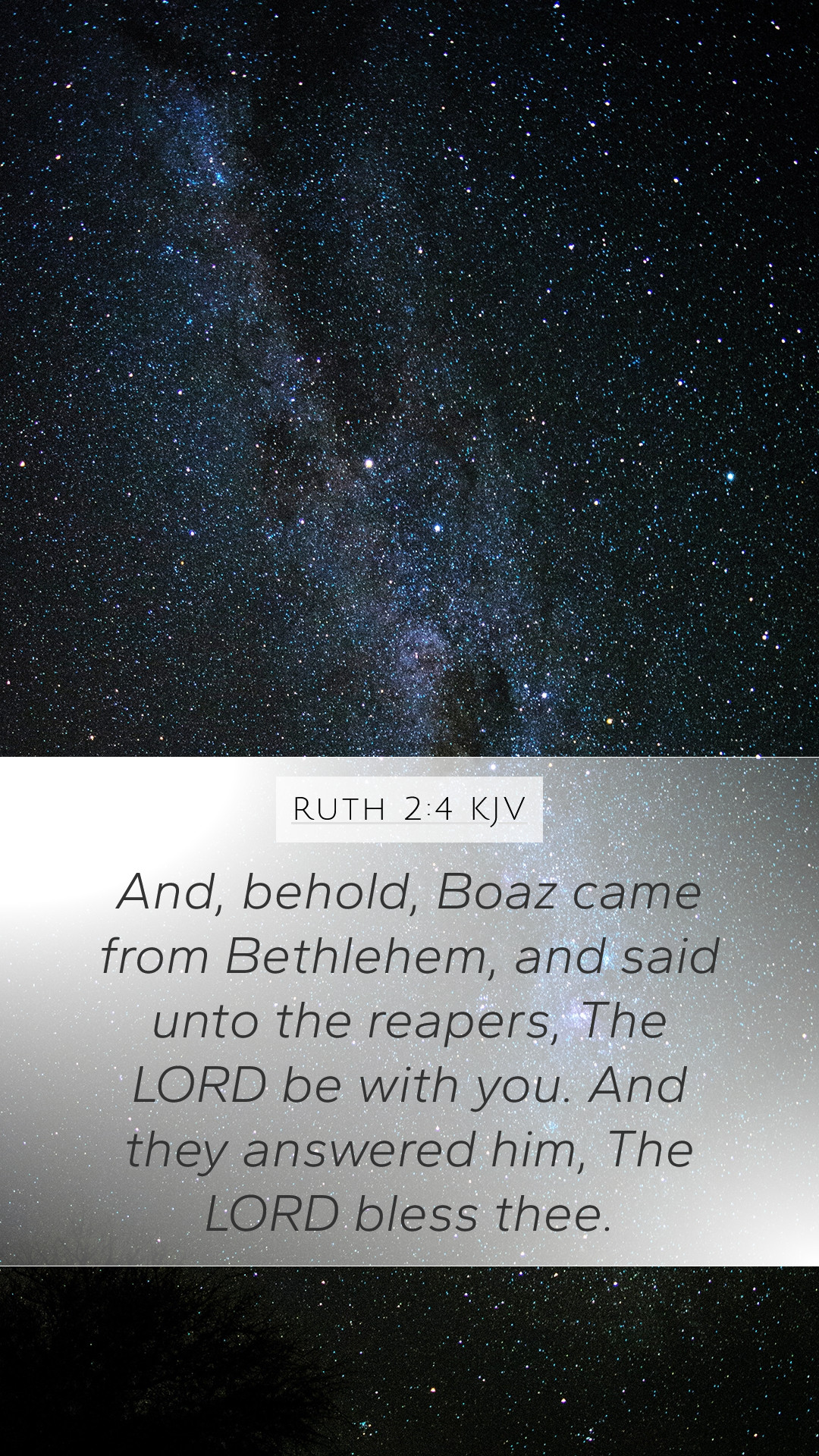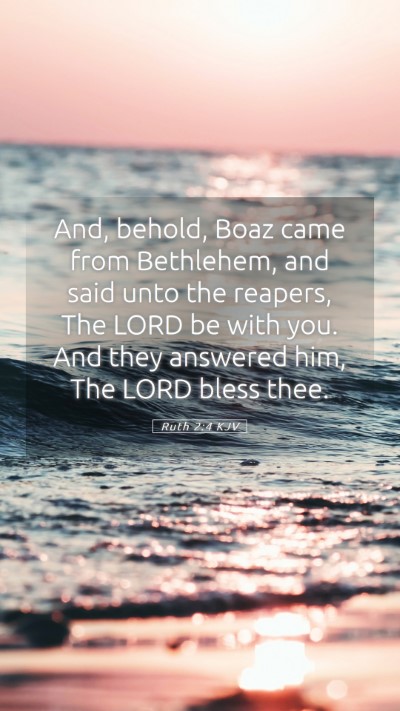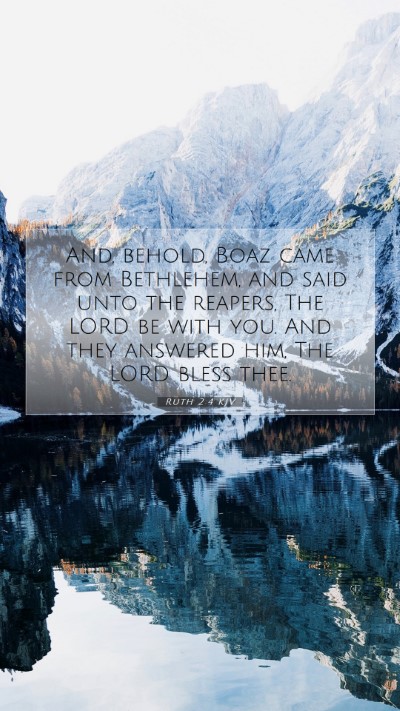Old Testament
Genesis Exodus Leviticus Numbers Deuteronomy Joshua Judges Ruth 1 Samuel 2 Samuel 1 Kings 2 Kings 1 Chronicles 2 Chronicles Ezra Nehemiah Esther Job Psalms Proverbs Ecclesiastes Song of Solomon Isaiah Jeremiah Lamentations Ezekiel Daniel Hosea Joel Amos Obadiah Jonah Micah Nahum Habakkuk Zephaniah Haggai Zechariah MalachiRuth 2:4 Meaning
What is the meaning of Ruth 2:4?
And, behold, Boaz came from Bethlehem, and said unto the reapers, The LORD be with you. And they answered him, The LORD bless thee.
Ruth 2:4 Bible Verse Meaning
Bible Verse Meanings: Ruth 2:4 Explained
Ruth 2:4 is a poignant verse that introduces Boaz, who plays a significant role in the narrative of Ruth. This verse reads: "And behold, Boaz came from Bethlehem, and said unto the reapers, The Lord be with you. And they answered him, The Lord bless thee."
Understanding Scripture: Context and Characters
The Book of Ruth is set during the time of the Judges, establishing a backdrop of social upheaval and personal hardship. Ruth, a Moabitess widow, has returned with her mother-in-law Naomi to Bethlehem, seeking sustenance and hope. Boaz, a kinsman of Naomi, becomes a crucial figure in their journey.
Bible Verse Interpretations
- Boaz's Character: According to Albert Barnes, Boaz exemplifies a man of character and piety. His immediate blessing upon the reapers reflects his kindness and commitment to God. This sets a tone of respect and divinely motivated camaraderie in work.
- The Lord's Presence: Matthew Henry interprets the greeting of Boaz, "The Lord be with you," as a demonstration of a godly attitude towards his workers. Boaz acknowledges God’s supremacy in daily work, which serves as an example for all believers in how they ought to greet others.
- Community Interaction: Adam Clarke notes the importance of this greeting as it exhibits the communal spirit of the agrarian society of Israel. Boaz not only demonstrates leadership but also reinforces unity among his workers.
Historical Context of Bible Verses
The greeting and response suggest a nature of mutual respect among community members in ancient Israel. This reflects foundational biblical principles of working for God and treating others with dignity, which apply to contemporary life.
Bible Study Insights
- Cultural Implications: The act of blessing workers symbolizes Boaz's understanding of his role as both a leader and a productive member of society. This insight is relevant for modern Bible study groups aiming to understand leadership in a biblical sense.
- Application in Daily Life: This verse invites readers to reflect on their work ethics. How do we greet those with whom we work? Dr. Clarke emphasizes the importance of our interactions as representatives of God’s kingdom.
Significance of Bible Verse Explanations
The verse highlights the significance of kindness and divine awareness in everyday interactions. As believers engage with others, they should remember the example set by Boaz. His willingness to engage with God and his workers sets a moral foundation for Christian conduct.
Cross References to Consider
- Leviticus 19:9-10: The command to leave the edges of the fields for the poor reflects the principles of community care.
- 1 Samuel 22:3: The context of Bethlehem as a gathering place highlights the communal nature of Israel, relevant in understanding Ruth's return.
- Philippians 4:19: God's provision, as exemplified in Boaz's actions, resonates with New Testament themes of care and abundance.
Application of Bible Verse Commentary
In summary, Ruth 2:4 serves not only as an introduction to Boaz but also as a profound insight into how believers are encouraged to act with godliness and kindness. This scripture sheds light on the values of hard work, community, and reverence towards God that should permeate modern Christian life.
Conclusion
For anyone searching for Bible verse meanings or looking to delve into biblical exegesis, Ruth 2:4 stands out as a rich text reflecting the character of a godly man in a time of strife. Engaging with the narratives around this verse provides depth to our understanding of Scripture, enriching our Bible study insights and guiding our interactions in a manner that honors God.


